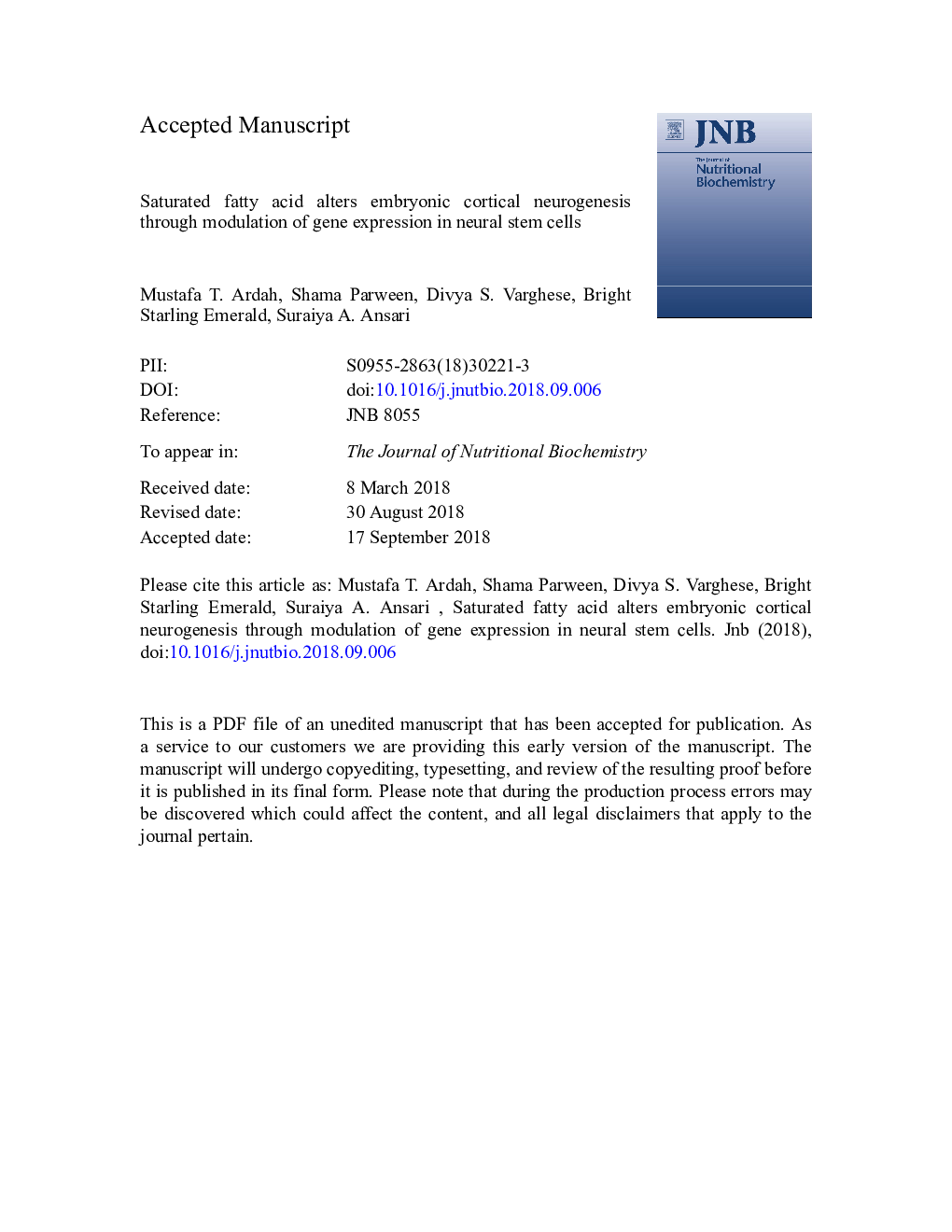| Article ID | Journal | Published Year | Pages | File Type |
|---|---|---|---|---|
| 11007589 | The Journal of Nutritional Biochemistry | 2018 | 46 Pages |
Abstract
A perturbed maternal metabolic environment such as chronically elevated circulating free fatty acids have been shown to affect stem cell fate during embryonic neurogenesis. However, molecular mechanisms behind this are not well defined, especially in human. Here in using directed differentiation of human embryonic stem cells (hESCs) into cortical neurons as model, we show that chronically elevated saturated fatty acid (palmitate) results in decreased proliferation of neural stem cells and increased differentiation into neurons. This phenotype could be due to palmitate mediated increased expression of key genes needed for neuronal differentiation such as EOMES, TBR1, NEUROD1 and RELN and reduced expression of SREBP regulated lipogenic genes at early stages of cortical differentiation. Furthermore, palmitate treatment increased histone acetylation globally and at select gene promoters among affected genes. We also found differential expression of several lncRNAs associated with cellular stress and metabolic diseases in the presence of palmitate including BDNF-AS suggesting the contribution of additional epigenetic regulatory mechanisms. Together, our results show that saturated fatty acid affects developmental neurogenesis through modulation of gene expression and through epigenetic regulatory mechanisms.
Keywords
Related Topics
Life Sciences
Biochemistry, Genetics and Molecular Biology
Biochemistry
Authors
Mustafa T. Ardah, Shama Parween, Divya S. Varghese, Bright Starling Emerald, Suraiya A. Ansari,
